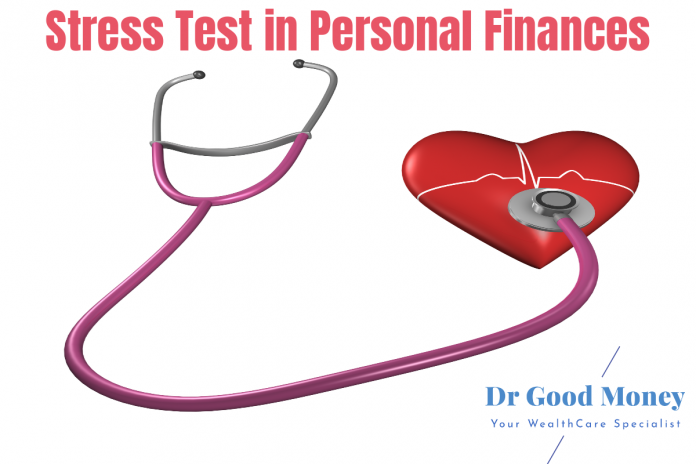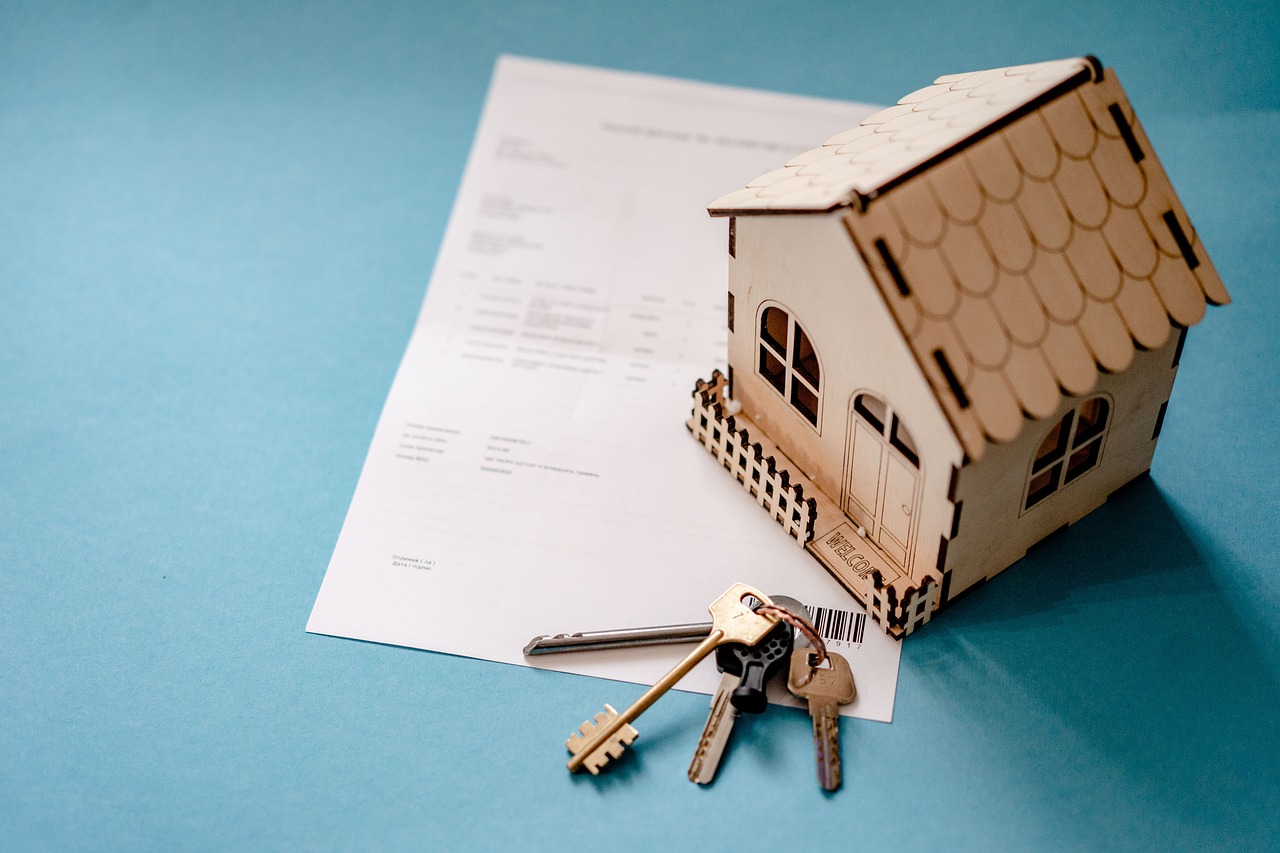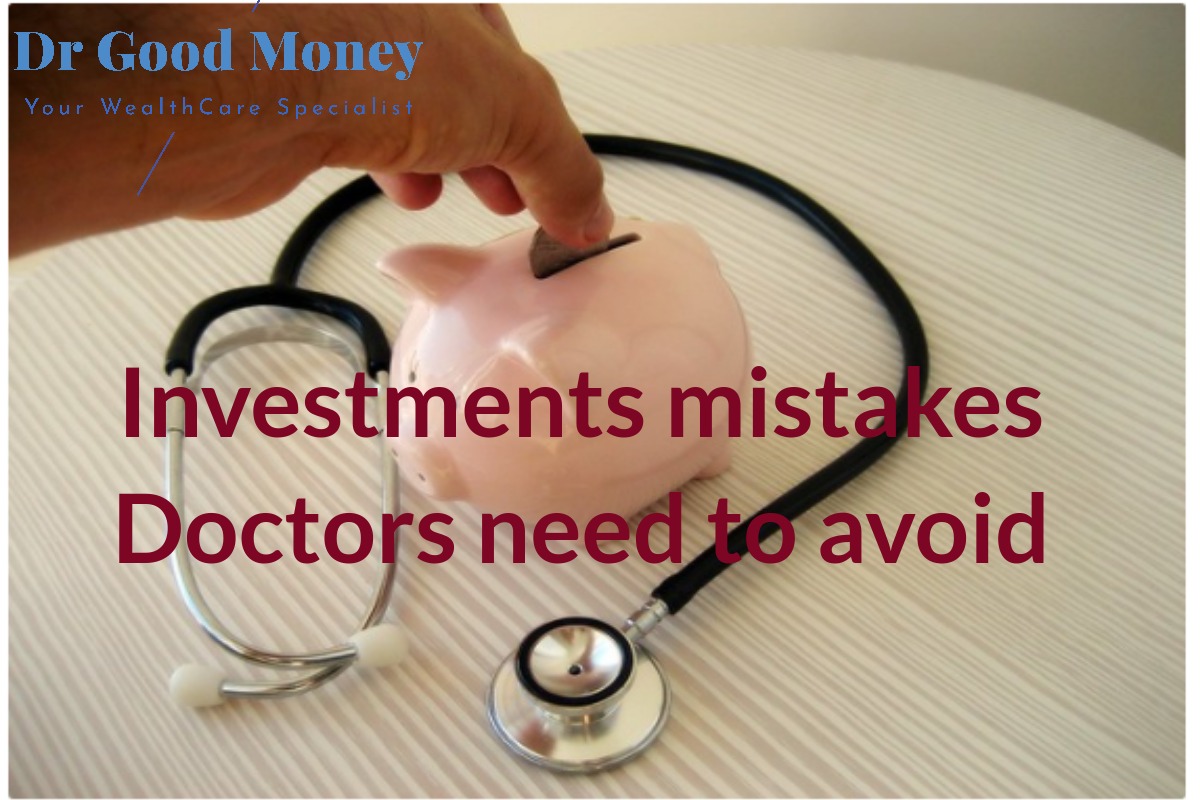Stress test generally referred to as the Heart function test which shows how your heart works during physical activity. Because exercise makes your heart pump harder and faster, an exercise stress test can reveal problems with blood flow within your heart. It is also known as TMT (Tread Mill Test).
Stress test in finances is an analysis conducted under hypothetical unfavorable economic scenarios, such as a deep recession or financial market crisis, to determine whether the institution especially a bank has enough capital to withstand the impact of adverse economic developments.
Bank stress tests were widely put in place after the 2007-2009 global financial crisis, the worst in decades.
Then what is Stress test in Personal Finances?
Institutions and big corporates which works under a well-defined structure and processes, and have to follow a set regulation, and where public money is involved, they do the stress test to keep checking their financial health every now and then as a regulatory requirement, under compulsion or as part of their best practices
When you deal with the financial institution like Bank , Insurance companies, etc., you would also want them to conduct this stress test at regular intervals, so as to be secured on the financial health and continuity of the same.
But when it comes to your own personal finances, its difficult to accept that we may also need financial stress test, so to be able to pass through the uncertainties that may crop up overtime. When things are going comfortable, you tend to take things very lightly, without realizing that you also have some stakeholders dependent on you and thus your better money management is important for their survival and success.
In Covid times, you have faced the real stress on your money. Health workers, Doctors, were exposed to the Major Risks. Even those who were not the front liners had faced some financial challenges, due to partial closure of the Hospitals and only sick patients got attended to. No one was sure that when the lock down would open, will their jobs be there or not. Many have experienced pay cuts or no pay in these times.
Situations like these may also come in the future, and it’s wise to be prepared with sound financial health, to face the times with confidence. And Stress test in personal finances is one of the tests that you can do at regular fixed intervals to keep abreast with your financial health and take action as and when required.
It is nothing but looking at your finances in a hypothetical stressed economic and personal environment, and see how well it can take care of you.
Below are some of the areas that get looked into in the stressed environment:
How to do a Stress test in Personal finances?
- Liquidity Situation:
You need to be sure of the liquidity available in your Finances. If tomorrow the regular Income stops, how many months’ expenses can be managed without dipping into the Savings. Here I am talking about only the basic needs and mandatory expenses like School fees, insurance premiums, Loan EMIs, etc.
Take note of your bank balances, cash in hand, Investments in Liquid mutual funds, etc. Make a list of all easy withdrawable Investments (Excluding the ones that are kept for the long term), and calculate, how many months’ expenses are there.
If you are below 40 years of age and are in a “stable” job profile, and working in a growing sector, then at least 6 months of Liquidity should be there; else try to have 1 year of easy liquidity available.
Do not treat your Credit card as one of the easy money options available to you. It’s a Loan which you should avoid in tough times.
(Also Read: Financial Planning tips for young doctors)
- Insurance Coverage:
It’s not only Income loss that may bother you. Any major health problem also has the potential to put stress on your personal finances. And If it comes along with Income loss, just imagine the damage it may give. (Income loss+ Hospitalization).
Insurance premiums are those mandatory and important expenses that you should not even think to discontinue in tough times.
Health, Life, Personal Accident policies all need to remain active, to take care of any eventuality. Professional Indemnity Insurance is equally important for Doctors, to keep their personal Assets safe from the liabilities arising due to their profession.
(Also Read: Insure Yourself completely, do not ignore personal accident insurance)
However, here I am talking about the risk covers and not the investment policies which may become one of the non-essential investments/expenses in these times. You may like to get the same reviewed from some professional so you may take a decision on whether to continue or surrender and increase the liquidity portion in your personal finances.
(Also Read: 5 Risks Doctors are exposed to and how to manage them?)
- Asset Allocation:
Though long-term investments should not be considered while reviewing the liquidity profile in your allocation, still liquidity in your Long-term allocation should be seen to manage the 3rd stage of financial stress.
This is to manage the situation where your Emergency fund and even Insurances are not enough to take care of the crises. If your Investments are more into lock-in products like Insurance ULIPs or Endowment Insurances or in some locked-in post office savings or Saving bonds or Real Estate then you may find yourself in a fix in a troubling situation.
Be sure to maintain good and liquid asset allocation and invest in products with less or no lock-in. Though you may be told that these products are eligible for loans, but why to?
(Also Read: Asset Allocation, the Balanced Diet to your investments)
- Diversification:
Just Imagine if you have put the major percentage of your debt investments in Franklin Funds which have been wound up now. Or have given soft loans to some of your family members or friends by compromising with your liquidity and now they are finding it difficult to repay.
I am not saying that Franklin like action may get repeated in the future by some other fund house, or your friend may not return your money. I just want you to be aware of concentration risk.
Never put all your eggs in one basket is an old adage and well applies here. Even the emergency fund needs to be divided into 2 different products.
Do not over diversify too, which becomes difficult to manage in the future, but keep a note on the percentage allocation in different instruments, and don’t keep more than 10% in a single product.
Over-diversification is unmanageable for you and even for your Family members in case of your absence.
- Loan profile
In good times this is a Normal mistake that you may make by burdening yourself with loan EMIs. This may not look like a burden then but in stressed times this surely will.
Even in bad times, one gets an impulse to take a loan so some easy money may get available to sail through the tough times. It’s not good planning at all.
Stay away from loans as far as possible. And if at all you have to take one, make sure that the Total EMIs should not exceed 30% of your Monthly Income. Even if your banker is ready to lend you 85% of the property cost as a home loan and even the interest rates are looking quite low you should not take it, to that limit.
Control your urge, save first and pay later, rather than buy first and pay later. Follow one loan at a time as a mantra. You should not add home loans, car loans, personal loans, credit card loans, consumer loans, etc. all at a single time. Pay off the due loan first and then lookout for the other, only if necessary.
Plus make sure that you have added the Loan EMIs due in your Emergency fund, to keep up with the liquidity situation.
(Read: Lipid Profile in Personal Finances)
Bottom line:
Detailed Stress test in Personal finances goes beyond the points mentioned above and may require you to think on the lines of What if you die…who will be the guardian of your kids, how will your family claim the insurance money, how will they invest and under whose guidance.
It may require you to review your Will and make sure that every asset has been updated there and the executor is still available and willing to help the family in executing the will.
You may have to think if any Private trust is required to be created in your family, or a Power of attorney to be given to someone to take care of money management in case of disability.
It’s such a big subject, which needs to be answered carefully when we are working towards wellness for self and family.
(Also Read: Is Your Money Giving you stress? Keep your ECG in check!)
The stress test in personal finances is an exercise where you do not think about the tax benefits in the product, the growth you are getting in your investments, the cost you are saving by not keeping a financial planner by your side, but to ensure that what you have done will take care of you and your loved ones in the difficult times or not and for how long.





